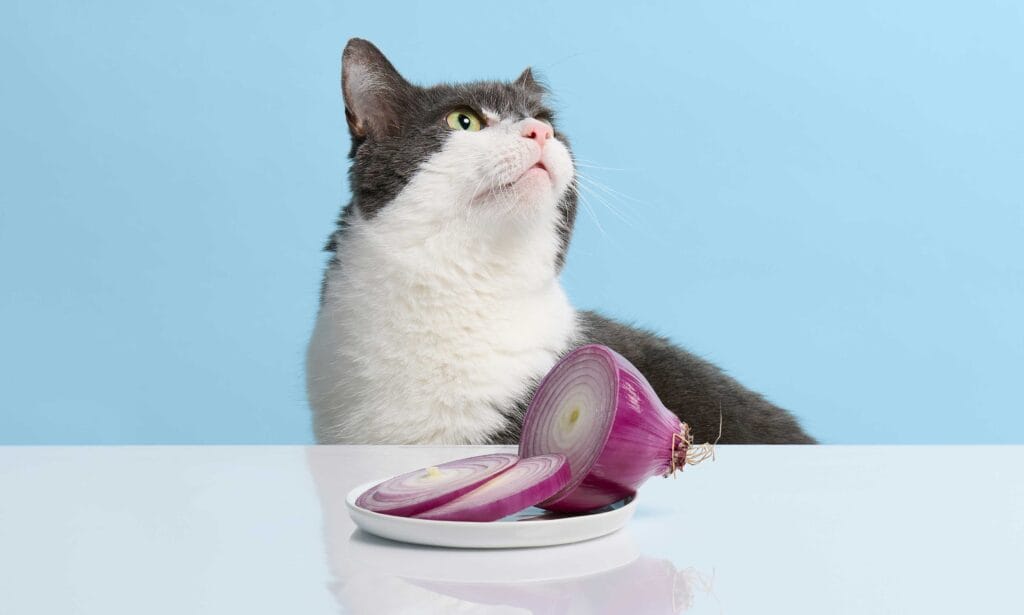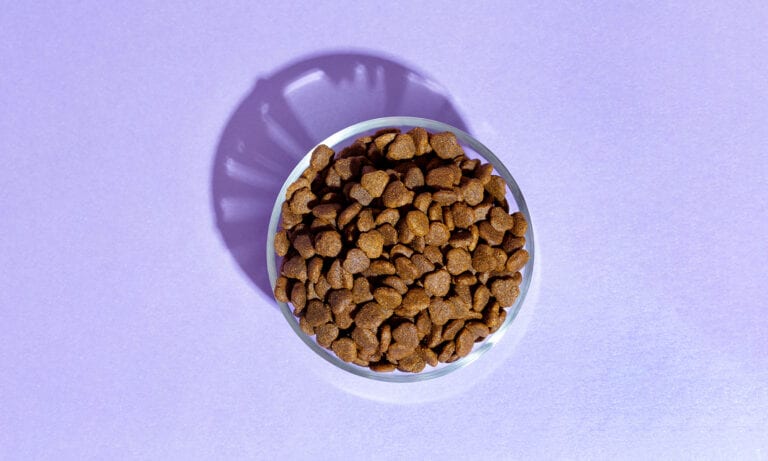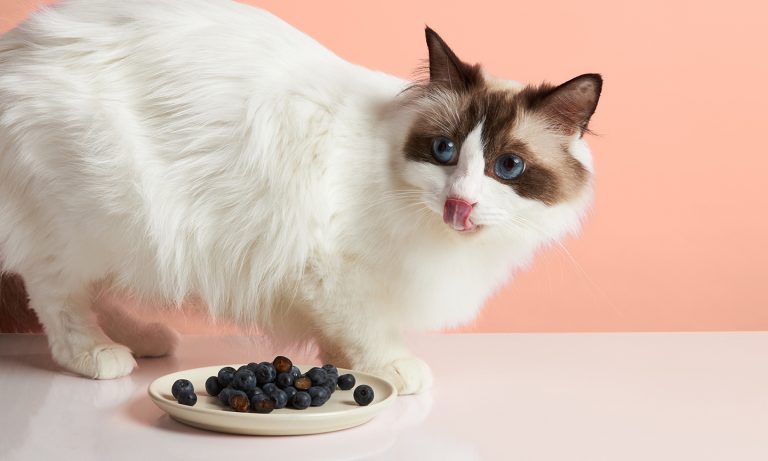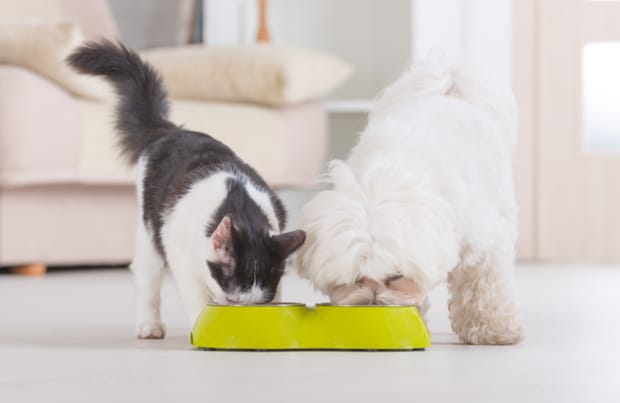Onions, a member of the Allium genus, have been a staple in human cuisine for centuries, treasured for their ability to add a bold pop of flavor to dishes. But can cats eat onions? The answer is a resounding no.
Onion in all its forms is toxic to cats and can cause serious, life-threatening issues, even in small amounts.
We spoke to vet experts to understand why this vegetable should never be on your kitty’s menu.
Click to jump to each section:
What Types of Onions Are Bad for Cats?
There are hundreds of different species in the genus Allium, but some of the Alliums commonly used in cooking include:
- White onions
- Red or purple onions
- Yellow onions
- Green onions (aka scallions)
- Shallots
- Sweet onions
- Pearl onions
- Leeks
- Chives
While a curious kitty might bite into a piece of raw onion, it’s much more likely they’ll eat a prepared food that has cooked onions or onion powder in it.
When onion is cooked, it reduces that sharp taste, which may make the onion or onion-containing foods more appealing (but not less toxic) to cats.
Foods that commonly contain onions include sauces, broths, soups, gravy and pizza.
Why Are Onions Bad for Cats?
When ingested, N-propyl disulfide can destroy a cat’s red blood cells, leading to a condition known as Heinz body hemolytic anemia.
In this condition, red blood cells are destroyed faster than they’re produced, impairing the blood’s ability to transport vital oxygen throughout the body. If not immediately treated by a veterinarian, this anemia can be fatal.
Beyond N-propyl disulfide, onions contain essential oils and other organosulfur compounds that can cause digestive issues, like nausea and abdominal pain.
How Much Onion Is Toxic to a Cat?
This is merely an estimate, and individual sensitivities can vary. Some cats might be affected by smaller amounts.
It’s crucial to note that onion powder is significantly more concentrated than fresh or cooked onions. A single medium onion, which weighs approximately 226 grams, is equivalent to 1 tablespoon of onion powder. So, the toxic dose of onion powder would be roughly a heaping 1/4 teaspoon for a 10-pound cat.
Onion poisoning can also result from consuming smaller amounts of onions over the course of multiple days.
Onion Poisoning Symptoms in Cats
The onset time for a cat to develop anemia due to onion consumption can be as soon as 12 hours after ingestion, but it’s typically delayed by two to five days.
The most common initial symptoms of onion poisoning in cats include vomiting, diarrhea and lethargy. Other initial signs might include:
- Nausea
- Loss of appetite
- Drooling
- Oral irritation
- Abdominal pain
Once anemia has set in, your cat may start displaying other symptoms. These symptoms reflect secondary damage to the liver and/or kidneys.
- Discolored or pale gums and other mucous membranes
- Depression
- Increased heart rate
- Rapid breathing
- Discolored/dark urine
- Weakness
- Yellowing of the skin and whites of the eyes
- Collapsing
- Seizures
What Should I Do If My Cat Ate Onions?
Ensure Your Cat Doesn’t Eat More Onion
The first thing to do is ensure the source of the onions is out of your cat’s reach to prevent further ingestion.
Note: Never induce vomiting at home unless instructed to do so by a veterinarian.
Seek Guidance and Care
Next, immediately contact your veterinarian for guidance, even if your cat isn’t showing symptoms.
If your regular vet is unavailable, head to an emergency veterinary clinic. Prompt treatment is essential before too much red blood cell destruction occurs.
When speaking to a veterinarian on the phone or in person, provide as much detail as possible about the incident, including the approximate amount of onion ingested; the type and form of onion ingested; and the time of ingestion. This will help the veterinarian in deciding the most appropriate course of action.
Call Pet Poison Control
It’s also recommended that you or your veterinarian call a veterinary poison control hotline, like the ones below, to speak to a poison control expert about how best to treat your cat.
- American Society for the Prevention of Animals (ASPCA) Animal Poison Control Center:(888) 426-4435
- Pet Poison Helpline:(855) 764-7661
Get Your Cat Treatment
Depending on various factors, your cat’s veterinary treatment may include some or all of the following:
- Induced vomiting (to remove any onion left in the stomach)
- Activated charcoal or other detoxification therapies (to reduce the amount of toxin absorbed into the bloodstream)
- A blood transfusion
- Medications to support symptoms and secondary conditions
- IV fluids
- Supplemental oxygen
The good news is that the prognosis is generally good if medical attention is promptly sought. Outcomes are less favorable, however, in cats who are severely affected by anemia and liver failure, as well as cats who don’t get prompt treatment.
How Do I Prevent My Cat from Eating Onions?
Here’s how to go about it:
- Safe storage: Restricting access to onions, especially those cooked into foods, is key to protecting your kitty from onion toxicity. Onions and onion-containing foods should be stored out of your cat’s reach. Consider using sealed containers or placing them in cupboards and drawers your cat can’t access.
- Awareness during cooking: While preparing meals, don't leave onions or onion-containing foods unattended, as your cat might jump on the counter and sneak a taste while you’re not looking. Also, watch for dropped pieces of onion that your cat might snatch. After cooking, ensure any remnants or peels are immediately disposed of in a secure trash bin.
- Vigilance while eating: If you’re consuming a dish with onions, don’t leave your food unattended. This ensures your cat won’t steal a bite. Also, be sure to promptly store or throw away leftover foods containing onions.
- Education: If you live with family members, roommates or have guests over, inform them about the dangers of feeding cats onions. Many people aren’t aware of the specific dietary risks certain foods pose to cats, so a gentle reminder can go a long way.
More Foods Cats Can't Eat:
Share:









